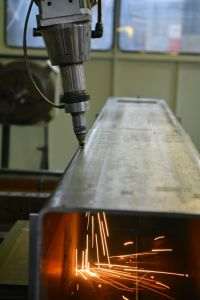In September, the European Commission intends to launch a new industrial policy, focused on innovation, which would help its member states exit the crisis.
As Europe is facing the most difficult situation since the end of WW2, the Commission wants to create and to implement a new strategy for economic growth, based on industrial innovation, estimating that the investments in top technologies and in the green economy would create millions of new jobs, said Antonio Tajani, the vice-president of the EC in charge of industry and companies, at the conference "Mission Growth: Europe at the Lead of the New Industrial Revolution".
The more efficient use of resources represents one of the pillars on which the European Union intends to base its industrial revolution, according to Antonio Tajani. Even though the EU has reduced its greenhouse emissions by over 15% in the last 20 years, some studies show that each percentage point of growth in the efficiency of the use of resources can generate additional revenues of 23 billion Euros and to create almost 150,000 jobs.
The European Commission is also working towards supporting Small and Medium Enterprises (SMEs), especially when it comes to facilitating the financing process, as they represent the majority of EU companies and provide 67% of the jobs in the Union. Antonio Tajani emphasized that 85% of the new jobs created over the past years have come from SMEs.
The automotive industry is another area of growth, employing more than 12 million people, and investing 28 billion Euros a year in research and development, which places it first among the economic sectors in this regard. The way forward in this area is the construction of green cars, with zero emissions, the vice-president of the EC considers, who said that the EU market for that type of cars could reach 170 billion Euros by 2030, and the number of newly generated jobs would exceed 100,000.
A very significant interest also comes from renewable energy, where investments have seen a spectacular growth over the last few years, in particular on segments such as solar and wind energy. The European Union currently holds about 40% of the green energy market and has technological leads in several sectors, but has to face strong competition on an international level. For that reason, the European Community is encouraging increasing the investments in this sector.
The constructions sector is another priority for the Commission, which wants to improve the energy efficiency and its safety rate. The long term objective is to create an as high number of buildings which would be energy independent, according to the representatives of the European Commission. Also, the cities of the future will have to be able to provide themselves with as much energy as possible by themselves.
As for tourism, the European Commission wants it to increase, by attracting an as large number of tourists from outside Europe as possible, but at the same time to make it more sustainable, by affecting the environment as little as possible.
Investments in cutting edge technologies are essential for the industrial development in order for Europe to once again become competitive, and the raw materials need to be better used and replaced, in the case of those who are becoming increasingly rare, says Antonio Tajani.
The space industry also has a great potential for the future, especially when it comes to the development of strategic sectors, such as the management of networks and transport systems, he said.
In order to stimulate industrial development, the European Commission is working on creating a framework that would encourage investments. Its proposals for the new EU budget include the Horizon 2020 program, which would offer funds for research and industrial innovation amounting to 80 billion Euros, and COSME, which would offer 50 billion Euros in financing for network infrastructure projects, of which 10 billion Euros in the form of bonds for projects and regional funds for energy efficiency, innovation and SME financing.
• 10 billion Euros for financing SMEs and the regions with the biggest needs
As about one third of SMEs are unable to obtain loans, the Commission wants to increase the funds available to the European Investment Bank by 10 billion Euros. Jose Manuel Barroso, the president of the European Commission, said that the proposal is increasingly gaining traction and it is time for it to be implemented. The targets for lending would be the financing of small and medium enterprises, as well as the countries and regions with the biggest needs, but which are also the least capable of obtaining the funds from somewhere else, according to him.
Antonio Tajani also said that the Directive concerning delayed payments should be implemented in March next year, in order to determine the public authorities to pay on time the amounts which they owe companies. The implementation of the directive would unlock 180 billion Euros, which would be made available to companies, he said.
The public administration should become more efficient, thus reducing the costs it creates for the business environment, according to the vicepresident of the European Commission. He explained that the procedures should be simplified on a European level, as well as in each European state, and the Commission is taking steps in that direction. One such example is the introduction of a competitiveness test, which would assess the effect of some legislative acts on the business environment.
The European Union must help its companies become international, so they can profit from the opportunities which the emerging markets have to offer, considers Antonio Tajani. The vicepresident of the European Commission, intends to continue the economic missions in several countries and regions with a high potential, such as Russia, China, Vietnam, or Northern Africa, in the coming months. He also claims that the EU should be less naive in its trade policies, in order for the European companies to have better access to the important markets. "Reciprocity should be the key condition in our trade relationships with strategic areas such as the American and North African markets", said Antonio Tajani.
Joanna Drake, the head of the SME and Entrepreneurship Department of the General Department for Industry and Enterprises of the European Commission, said that many small and medium sized companies would like to internationalize, but they are facing a series of obstacles, among which the legislative ones hold an important role. The Commission can not intervene in the fiscal policies of the member countries, as these are exclusive attributes of sovereign states, he explained. What he can do is try to reduce the number of requirements which need to be carried out in order to obtain the licenses and to create a system based on the mutual recognition of the authorization documents, the European official said.
Ole Sohn, the Minister for the Economy and Development of Denmark, the country which currently holds the presidency of the Council of the European Union, said that the only way forward for the EU consists of the fiscal consolidation and the stimulation of economic growth. The latter can be achieved by providing access to financing, especially for SMEs, by increasing the efficiency of the Single Market, which in turn would increase the level of competitiveness of the European economy, and by creating a more attractive business environment, which would cause innovative companies to set up their headquarters in the EU, he explained.
Daniel Calleja Crespo, the managing director for Industry and Enterprises of the European commission, said that the European countries which are doing best are those which still have an industrial foundation, with this being another argument for the drafting of a policy which would support the development of the industry in Europe.
Didier Herbert, the head of the Department for Coordination, Planning and International Affairs of the General Department for Industry and Enterprises of the European Commission, said that the industrial policy must create the best conditions for the companies to enter the market and operate companies. Those conditions range from general ones, such as the access of companies to funding, or specific, targeted towards each individual sector, he explained.
• A third industrial revolution
Economist Jeremy Rifkin said that under the current global conditions, there is a need for a new economic line of thinking, one which would lead to a new industrial revolution, based on renewable resources and communications. This would rely on five pillars, according to him.
The first pillar consists of reaching the 20% target for the weight of the renewable energy out of the total energy consumed in the EU. The second pillar consists of creating buildings capable of becoming true electrical plants, capable of providing their own energy for consumption. The third pillar is represented by the storage of the generated energy, to be used when the energy sources are missing. The next step would involve the sale of the surplus energy to other consumers, a process facilitated by the new communication systems, especially the Internet. The last pillar consists of the transport of the energy sold, which would be achieved through the use of "intelligent" grids, which would reduce the losses which might occur along the way to a minimum.
For the European Union to be in the lead of this new industrial revolution, the measures taken must be integrated, instead of targeting isolated investment projects, Jeremy Rifkin explained. The new system would allow small and medium sized companies to be able to better compete with the big ones, since the communication between them will be much easier than in the past, according to him. "If the two revolutions propagated vertically, the third one will propagate horizontally. We will be witnesses to a continentalization of the economy", the economist considers. The process will not be easy, Jeremy Rifkin warned. He said, however, that we are talking about a long term process and there are countries which have already taken big steps in that direction.


















































